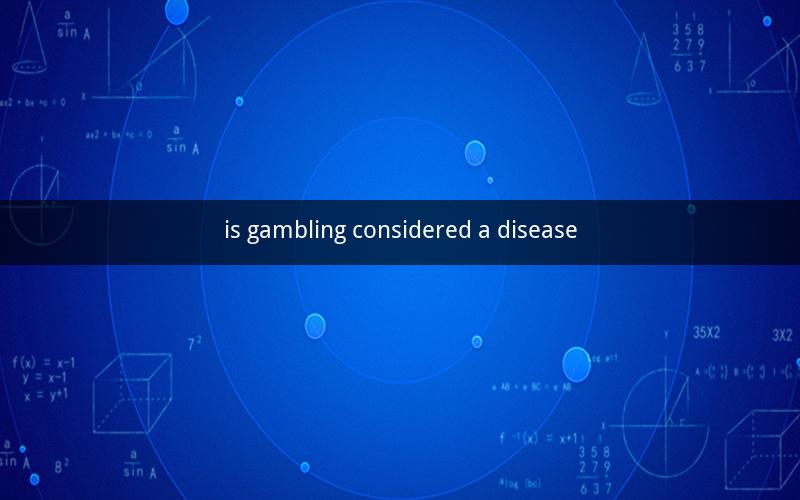
Is Gambling Considered a Disease?
Table of Contents
1. Understanding the Concept of Gambling
2. The Evolution of Gambling
3. Defining Problem Gambling
4. Medical and Scientific Perspectives on Gambling
5. The Diagnostic and Statistical Manual of Mental Disorders (DSM-5)
6. The Impact of Gambling on Mental Health
7. Treatment and Support for Gamblers
8. Public Policy and Gambling
9. Conclusion
1. Understanding the Concept of Gambling
Gambling has been a part of human culture for centuries, with various forms of betting and wagering occurring in different societies. It involves risking something of value on an event with an uncertain outcome, with the intent of winning additional money or material goods. While many engage in gambling as a form of entertainment, it can lead to significant personal, social, and financial consequences for others.
2. The Evolution of Gambling
The evolution of gambling reflects the changing social, economic, and technological landscapes. From ancient civilizations' games of chance to modern-day casinos and online platforms, the accessibility and variety of gambling options have expanded exponentially.
3. Defining Problem Gambling
Problem gambling, also known as gambling disorder, is characterized by persistent and recurrent problematic gambling behavior leading to clinically significant impairment or distress. It is important to differentiate between problem gambling and recreational gambling, as the latter does not typically lead to negative consequences.
4. Medical and Scientific Perspectives on Gambling
The medical and scientific communities have recognized gambling as a disorder for several decades. The American Psychiatric Association (APA) classified gambling as an addictive behavior in the third edition of the Diagnostic and Statistical Manual of Mental Disorders (DSM-III) in 1980.
5. The Diagnostic and Statistical Manual of Mental Disorders (DSM-5)
The DSM-5, the latest edition of the APA's diagnostic manual, retains the classification of gambling disorder. It outlines specific criteria for diagnosing gambling disorder, including the presence of five or more of the following symptoms within a 12-month period.
6. The Impact of Gambling on Mental Health
Gambling disorder can have severe implications for mental health, leading to conditions such as depression, anxiety, and substance abuse. The disorder can also affect relationships, employment, and overall quality of life.
7. Treatment and Support for Gamblers
Treatment for gambling disorder often involves a combination of therapy, medication, and support groups. Cognitive-behavioral therapy (CBT) is particularly effective in helping individuals develop healthier gambling behaviors and coping mechanisms.
8. Public Policy and Gambling
Public policy plays a crucial role in addressing gambling disorder. Governments can implement regulations to limit the availability of gambling, provide education on responsible gambling, and offer support services for those affected by problem gambling.
9. Conclusion
Gambling, once a mere pastime, has evolved into a complex issue with significant implications for mental health and public welfare. Recognizing gambling as a disorder is essential for providing appropriate treatment and support to those affected. As society continues to evolve, it is crucial to address the challenges posed by gambling disorder and promote a healthier approach to this activity.
FAQs and Answers
1. What is the primary difference between problem gambling and recreational gambling?
- Problem gambling is characterized by persistent and recurrent problematic behavior leading to negative consequences, whereas recreational gambling is typically engaging in gambling as a form of entertainment without significant negative impacts.
2. How does gambling disorder affect the brain?
- Gambling disorder can activate the brain's reward system, leading to increased dopamine release, which can result in addictive behavior.
3. Can gambling disorder be cured?
- While there is no definitive cure for gambling disorder, effective treatment and support can help individuals manage their gambling behaviors and reduce the negative consequences.
4. What are some common symptoms of gambling disorder?
- Common symptoms include preoccupation with gambling, loss of control over gambling behavior, chasing losses, lying to hide gambling, and experiencing mood swings.
5. How can I identify if someone has a gambling disorder?
- Look for signs such as secretive behavior, financial difficulties, neglect of responsibilities, and changes in relationships or employment.
6. Are there any medications available for treating gambling disorder?
- Medications such as naltrexone and topiramate have been shown to help some individuals manage their gambling behaviors.
7. Can therapy help with gambling disorder?
- Yes, therapy, particularly cognitive-behavioral therapy (CBT), has been proven effective in helping individuals change their gambling behaviors and develop healthier coping mechanisms.
8. Is online gambling more addictive than traditional gambling?
- Online gambling can be more addictive due to its accessibility, convenience, and the potential for anonymity, which can make it easier to engage in excessive gambling.
9. What role does genetics play in gambling disorder?
- Genetics may play a role in the predisposition to gambling disorder, with research suggesting that there may be a genetic component to addictive behaviors.
10. Can a person with a gambling disorder recover without professional help?
- While some individuals may recover without professional help, seeking support from therapists, counselors, or support groups can significantly improve the chances of long-term recovery.